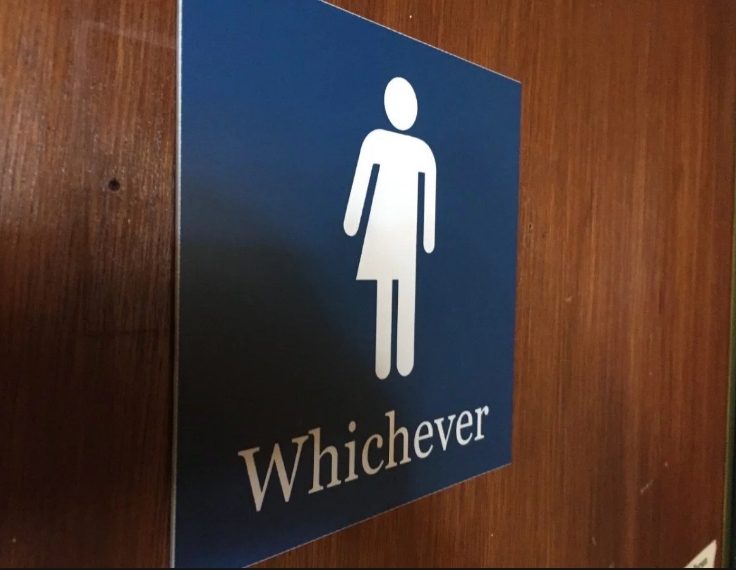Federal appeals court rules in favor of professor who refused to use preferred pronouns of transgender student
03/31/2021 / By Nolan Barton

The Court of Appeals for the 6th Circuit on Friday, March 26, unanimously ruled that an Ohio professor can sue Shawnee State University in southern Ohio for violating his constitutional rights after he was disciplined for refusing to use the preferred pronouns of a transgender student.
Nicholas Meriwether, a philosophy professor at Shawnee State, filed a lawsuit in 2018 after the school formally disciplined him for refusing to follow a school policy requiring the use of a student’s pronouns that match his or her gender identity.
The decision by a three-judge panel reversed a previous district court ruling that dismissed Meriwether’s claims.
In the majority opinion, Judge Amul Thapar wrote that while transgender issues are “hotly contested,” the school had trampled on Meriwether’s free speech rights by not allowing him reasonable freedom in how he addresses his students.
“If professors lacked free-speech protections when teaching, a university would wield alarming power to compel ideological conformity,” Thapar wrote in the court’s 32-page opinion. “A university president could require a pacifist to declare that war is just, a civil rights icon to condemn the Freedom Riders, a believer to deny the existence of God, or a Soviet émigré to address his students as ‘comrades.’ That cannot be.”
Thapar was joined in the opinion by Judge David McKeague and Judge Joan Larsen.
“Traditionally, American universities have been beacons of intellectual diversity and academic freedom. They have prided themselves on being forums where controversial ideas are discussed and debated. And they have tried not to stifle debate by picking sides,” Thapar wrote.
“But Shawnee State chose a different route: It punished a professor for his speech on a hotly contested issue. And it did so despite the constitutional protections afforded by the First Amendment. The district court dismissed the professor’s free-speech and free-exercise claims. We see things differently and reverse.”
School policy leads to legal battle
According to Meriwether, the school administration introduced a policy requiring professors to address transgender students by their preferred pronouns in 2016. He immediately pushed back, claiming that this went against his beliefs as a Christian.
But Meriwether did not have any students that the policy applied to until January 2018. According to the court ruling, a student spoke to Meriwether after the first class and asked for “her” preferred pronouns to be used. (Related: Utah legislature advances bill banning transgender girls from female sports.)
The student allegedly got upset and filed a complaint when Meriwether said that he wasn’t sure he could comply due to his own beliefs.
A series of compromises were discussed between the administration and Meriwether in the ensuing months, but the student kept filing more complaints over the semester.
The school eventually conducted a Title IX investigation against him, Meriwether said. The investigation concluded that Meriwether’s treatment of the student created a “hostile environment,” and the dean of the university’s college of arts and sciences recommended putting a formal warning in his file.
According to Merriwether, he was warned that if his behavior was to continue, he could face further corrective actions, including suspension without pay or termination. The faculty union intervened on Meriwether’s behalf but was unable to exempt him from the policy.
Meriwether filed his lawsuit in 2018. Despite their legal battles, he remains a professor at Shawnee State.
The Alliance Defending Freedom, a Christian advocacy group representing Meriwether, applauded the court’s decision. “This case forced us to defend what used to be a common belief – that nobody should be forced to contradict their core beliefs just to keep their job,” said John Bursch, the group’s senior counsel and vice president of appellate advocacy, in a statement.
Universities can’t catch a break in federal appeals court this month
Earlier this month, the Court of Appeals for the 8th Circuit ruled that officials from the University of Iowa (UIowa) violated the constitutional rights of their students when the school banned a student organization for requiring its leaders to be Christian.
The legal battles began in 2017 when UIowa officials subjected the student business organization known as Business Leaders in Christ (BLinC) to an investigation. The school ultimately demanded the group to revise its leadership criteria after a student complained about being denied a leadership position. UIowa officials argued that the club violated the university’s human rights policy by discriminating against a student.
The student who filed the complaint against BLinC was openly gay. He felt that he had been discriminated against because of his sexual orientation. According to the club, his sexual orientation was never an issue, but it’s rules require its leaders to be Christian and to believe in the doctrine of the Christian faith.
“The law is clear: State organizations may not target religious groups for differential treatment or withhold an otherwise available benefit solely because they are religious. That is what happened here,” wrote Circuit Judge Jonathan A. Kobes. “The individual defendants may pick their poison: They are either plainly incompetent or they knowingly violated the Constitution. Either way, they should not get qualified immunity.”
In 2020, a lower court ruled that UIowa’s decision to forcibly disband BLinC was illegal and that the Christian student organization must be allowed back on campus. The latest decision affirmed the ruling.
Follow IdentityPolitics.news for more news and information related to transgenders.
Sources include:
Tagged Under: academic freedom, Christian advocacy group, Christian faith, Constitution, Court of Appeals, Gender identity, human rights policy, intellectual diversity, legal battle, openly gay, Sexual orientation, student organization, transgender
RECENT NEWS & ARTICLES
COPYRIGHT © 2018 SPEECHPOLICE.NEWS
All content posted on this site is protected under Free Speech. SpeechPolice.news is not responsible for content written by contributing authors. The information on this site is provided for educational and entertainment purposes only. It is not intended as a substitute for professional advice of any kind. SpeechPolice.news assumes no responsibility for the use or misuse of this material. All trademarks, registered trademarks and service marks mentioned on this site are the property of their respective owners.




















